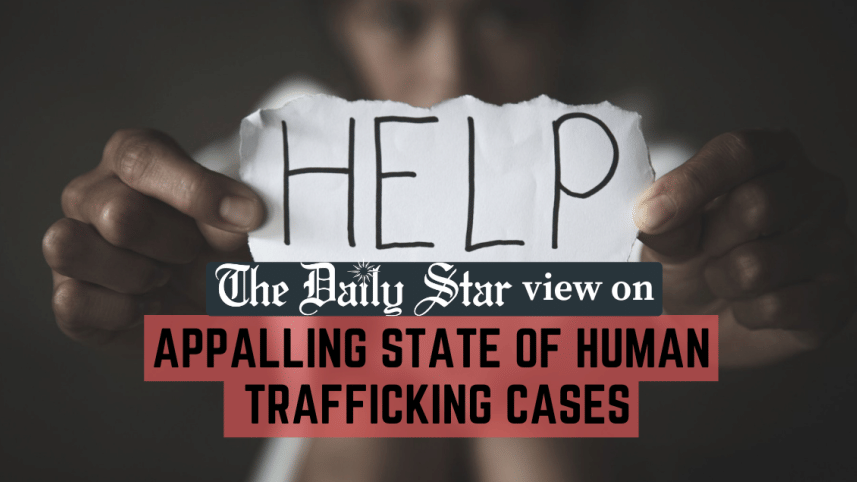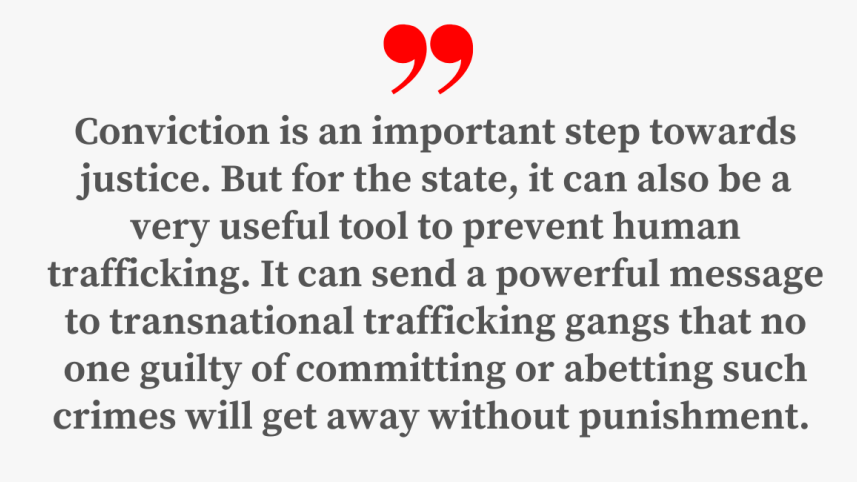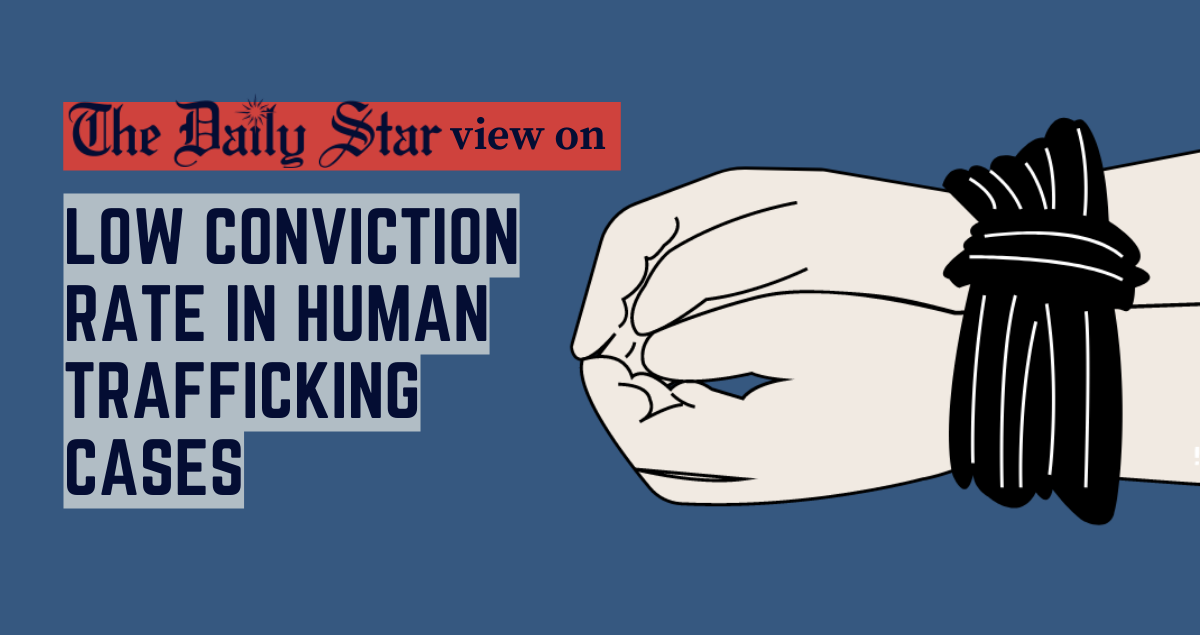Victims of human trafficking deserve justice

A new assessment of the state of human trafficking cases in Bangladesh has once again highlighted concerns about the optics of efforts vs. meaningful interventions to prevent such crimes in the country. According to a report by Prothom Alo on November 27, which quoted "updated information" from the Police Headquarters, a total of 7,517 cases have been registered under the Prevention and Suppression of Human Trafficking Act over the last 18 years, with Dhaka division registering 40 percent of the cases. And of the total cases, only 247 – or 3.28 percent – were settled. There have been other trafficking-related disclosures as well, including information on numbers of arrestees, victims, rescued victims, and on convictions. Of those convicted, eight were given death sentences and 299 given life sentences during this period.
The dismally low conviction or settlement rates are supported by other recent findings. In early October, for example, The Daily Star, after analysing data from the Anti-Human Trafficking Offence Tribunal of Dhaka, found that it disposed of some 858 cases from March to August 2020, with only 13 cases – or 1.5 percent – ending in convictions. Bangladesh has seven such divisional tribunals dealing with human trafficking cases. Together, according to the home ministry, they have had a total of 5,781 cases pending as of June 2022. The apparent mismatch between these two sets of records can be a point of contention. But more concerning is the lack of impact of these special tribunals formed in 2020.

The specialised legal infrastructure, which was built amid a then-looming threat of US sanctions, was indeed a good initiative. But as subsequent developments show, the government's focus seems to be more on ticking boxes that can improve its standing in the US Trafficking in Persons (TIP) reports than on actual reforms in terms of prosecution, protection and prevention. This has led to a jumble of poorly designed and haphazardly executed programmes, including special tribunals. The appallingly poor conviction rate is an example. The challenge is to make these programmes work, by empowering victims to take legal course, swiftly disposing of their cases, and ensuring that most result in convictions rather than out-of-court settlements, which victims are often forced to choose. In many cases, there has been no trial even after a decade, with the accused criminals let off the hook through bail. This is most unfortunate.
Conviction is an important step towards justice. But for the state, it can be a very useful tool to prevent human trafficking. It can send a powerful message to transnational trafficking gangs that no one guilty of committing or abetting such crimes will get away without punishment. For that, the authorities must recognise factors that are hindering the justice process, including lack of evidence, lack of protection for victims, lack of initiative from prosecutors and investigators, and other factors that may be helping accused criminals to dodge justice. To end human trafficking and the suffering of victims, the authorities must make conviction their number one priority.



 For all latest news, follow The Daily Star's Google News channel.
For all latest news, follow The Daily Star's Google News channel. 

Comments